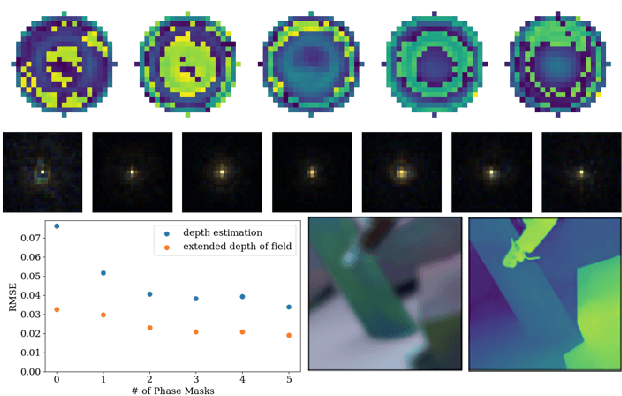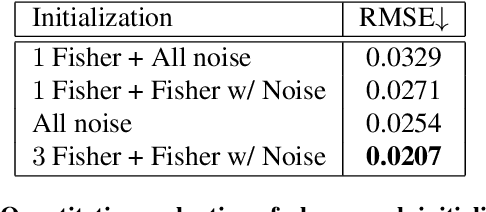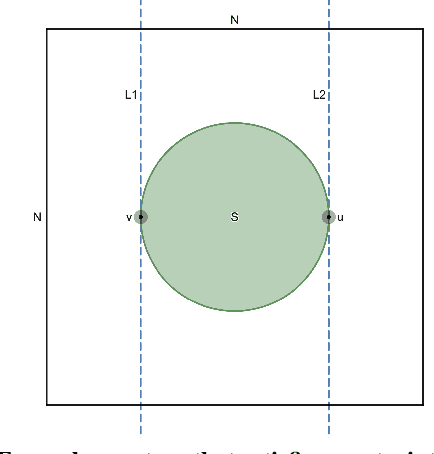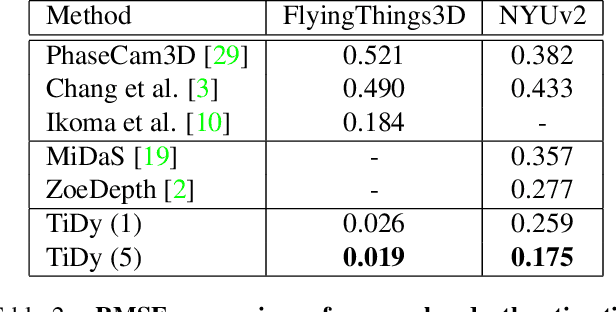TiDy-PSFs: Computational Imaging with Time-Averaged Dynamic Point-Spread-Functions
Paper and Code
Mar 30, 2023



Point-spread-function (PSF) engineering is a powerful computational imaging techniques wherein a custom phase mask is integrated into an optical system to encode additional information into captured images. Used in combination with deep learning, such systems now offer state-of-the-art performance at monocular depth estimation, extended depth-of-field imaging, lensless imaging, and other tasks. Inspired by recent advances in spatial light modulator (SLM) technology, this paper answers a natural question: Can one encode additional information and achieve superior performance by changing a phase mask dynamically over time? We first prove that the set of PSFs described by static phase masks is non-convex and that, as a result, time-averaged PSFs generated by dynamic phase masks are fundamentally more expressive. We then demonstrate, in simulation, that time-averaged dynamic (TiDy) phase masks can offer substantially improved monocular depth estimation and extended depth-of-field imaging performance.
 Add to Chrome
Add to Chrome Add to Firefox
Add to Firefox Add to Edge
Add to Edge